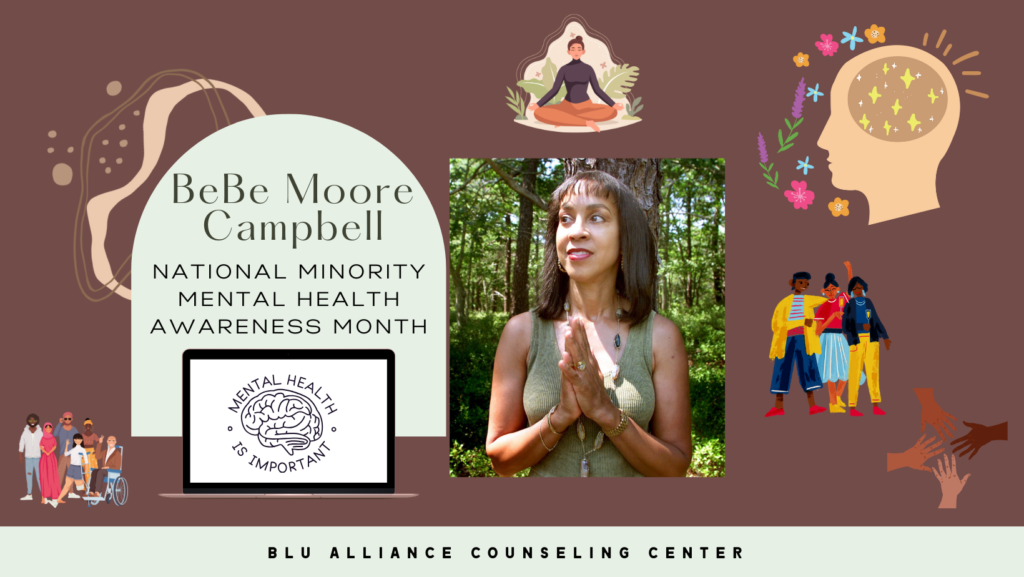
Hello everyone, we are very excited this month to celebrate Bebe Moore Campbell National Minority Mental Health Awareness Month, which is dedicated to raising awareness about the unique mental health challenges faced by BIPOC (Black, Indigenous, and People of Color) communities in the United States. Named in honor of Bebe Moore Campbell, an advocate who strived to bring attention to the mental health needs of the Black community and other underrepresented groups, this month encourages conversations about mental health, fights stigma, and promotes equitable access to care. Various organizations contribute resources and support to foster understanding and improve mental health outcomes in minority communities.
Mental Health America (MHA)
Mental Health America (MHA) focuses on breaking down stigma and promoting mental health education within BIPOC (Black, Indigenous, and People of Color) communities. MHA emphasizes the importance of expressing feelings and seeking help as signs of strength. They offer various resources and tools, including:
- Stigma and Mental Health Myths: MHA provides information to dispel myths, such as the misconception that mental illness is solely a “white people problem.” They advocate that everyone deserves proper mental health care regardless of race.
- Storytelling: MHA highlights the power of storytelling in reducing mental health stigma within BIPOC communities. Sharing personal stories can help others feel less isolated and more understood.
- Generational Wisdom: MHA recognizes that different generations within BIPOC communities face unique mental health challenges and encourages the sharing of generational wisdom.
- BIPOC Mental Health Toolkit: MHA offers a comprehensive toolkit to educate and support BIPOC individuals and communities about mental health.
- Crisis Resources: MHA provides information on accessing crisis support through hotlines and text services.
MHA has created an information video to promote Bebe Moore Campbell National Minority Mental Health Awareness Month as well as included the voices of BIPOC individuals to share their stories within mental health. Please enjoy the videos below.
For more information and resources, visit MHA’s BIPOC Mental Health Resource Center.
U.S. Food & Drug Administration (FDA)
The FDA highlights the disparities in mental health care access among minority communities and provides education on mental health and common mental illnesses. Their key contributions include:
- Awareness of Mental Health Challenges: The FDA brings attention to the lower rates of mental health treatment among African Americans and Asian Americans due to barriers like lack of health insurance and stigma.
- Education on Mental Health: The FDA explains the importance of mental health and its impact on overall well-being, emphasizing the need for proper management of mental health.
- Symptoms and Causes of Mental Illness: They provide information on symptoms of mental illness and potential risk factors, such as substance use, loneliness, and adverse childhood experiences.
- Women’s Mental Health: The FDA offers detailed information on mental illnesses common among women, including anxiety disorders, depression, and postpartum depression.
- Managing Mental Health: They suggest strategies for maintaining good mental health, such as getting enough sleep, exercising, and seeking support from health care providers.
For more information, visit FDA’s Mental Health page.
National Alliance on Mental Illness (NAMI)
NAMI honors Bebe Moore Campbell’s legacy by focusing on eradicating stigma and improving mental health culture through conversations and community support. Their offerings include:
- Healing Communities Through Conversations: NAMI promotes open dialogues about mental health in underserved communities to reduce stigma and provide support.
- Community Conversations: They organize initiatives like “NAMI Sharing Hope” for Black/African Ancestry communities, “NAMI Compartiendo Esperanza” for Hispanic/Latin American communities, and others to foster mental health discussions.
- Toolkit for Awareness: NAMI provides a toolkit to help organizations and individuals promote Bebe Moore Campbell National Minority Mental Health Awareness Month.
- Social Media Campaigns: They run campaigns such as #ShadesofMentalHealth to encourage sharing stories and creating supportive mental health communities.
- Support Groups and HelpLines: NAMI offers peer-led support groups and helplines for individuals needing mental health assistance.
NAMI has provided Informational Graphics to promote Bebe Moore Campbell National Minority Mental Health Awareness Month. They have stated to “Incorporate these graphics and logos in your social media posts, cover images, website hero images or other materials existing messaging to help spread awareness during July. Download the graphics below or find the full selection of graphics at www.nami.org/awareness-resources/“
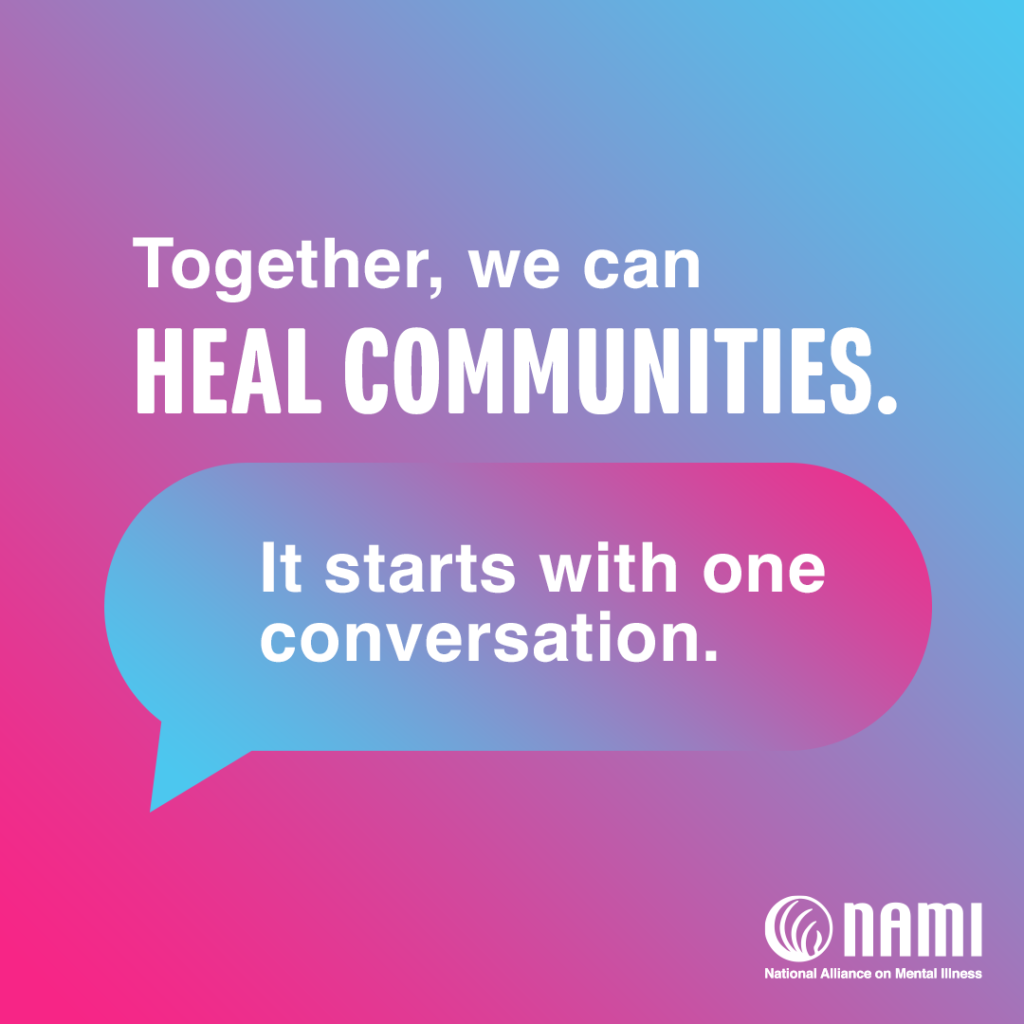
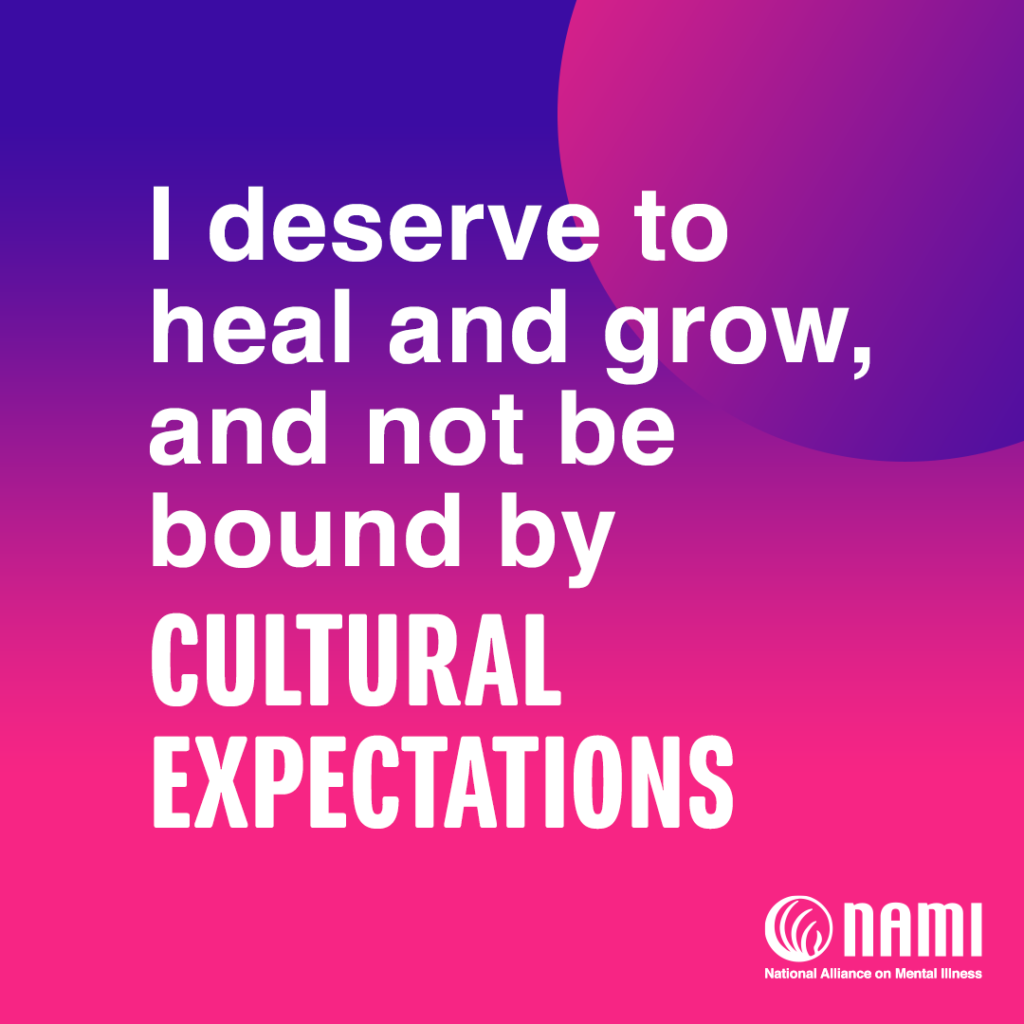
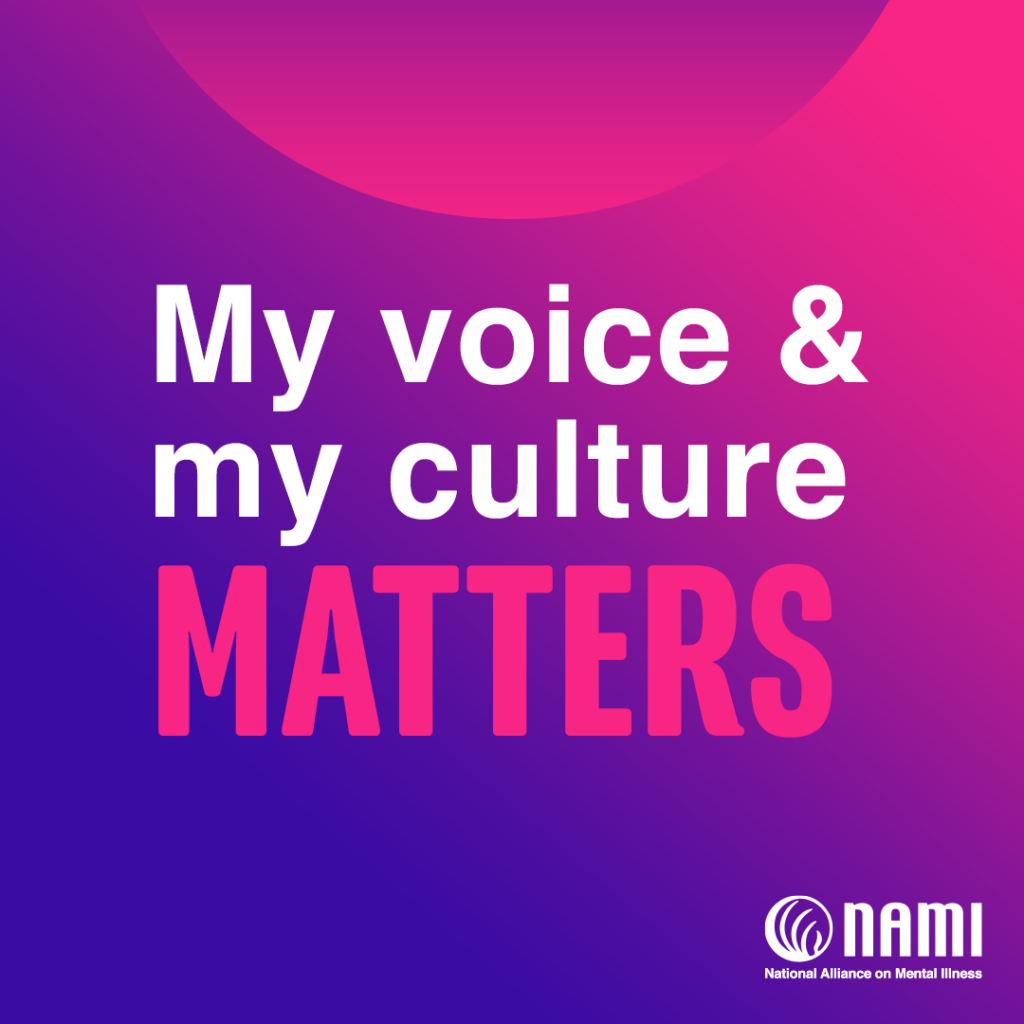
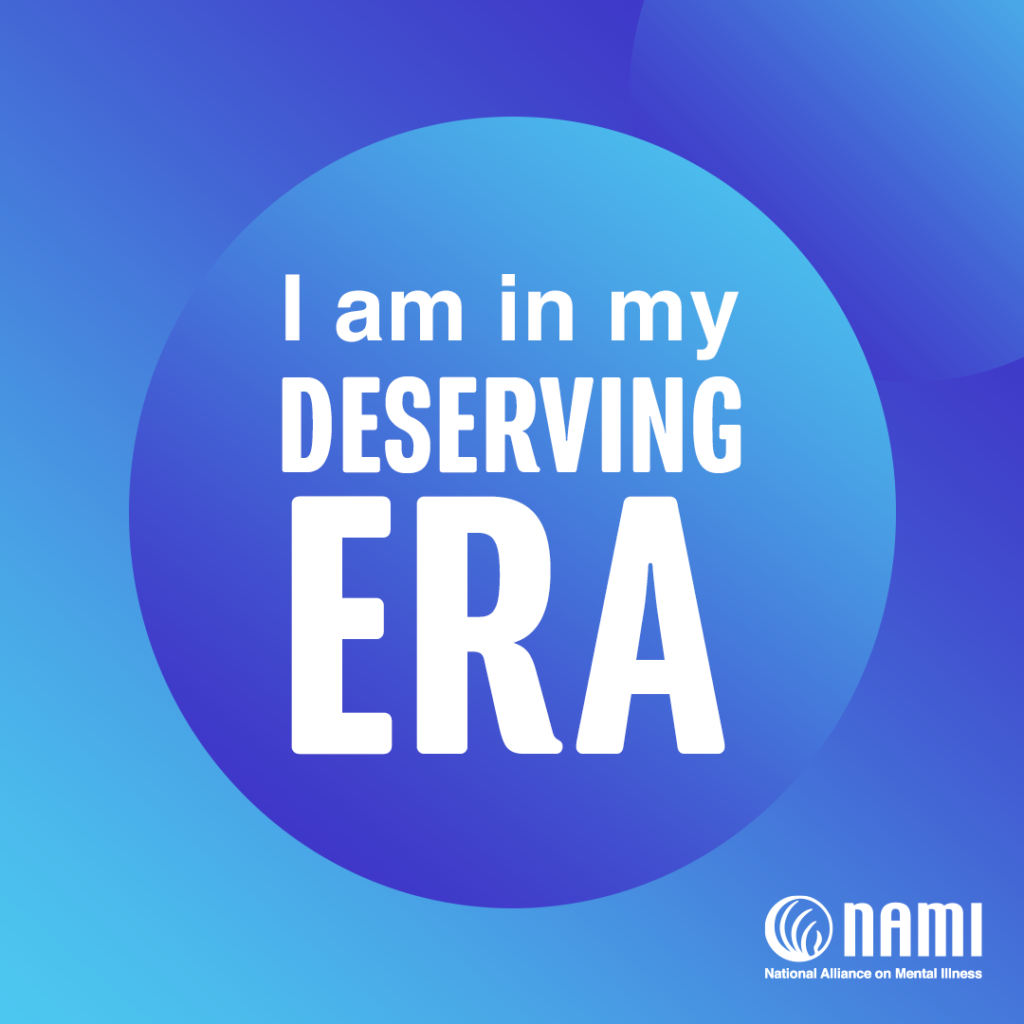
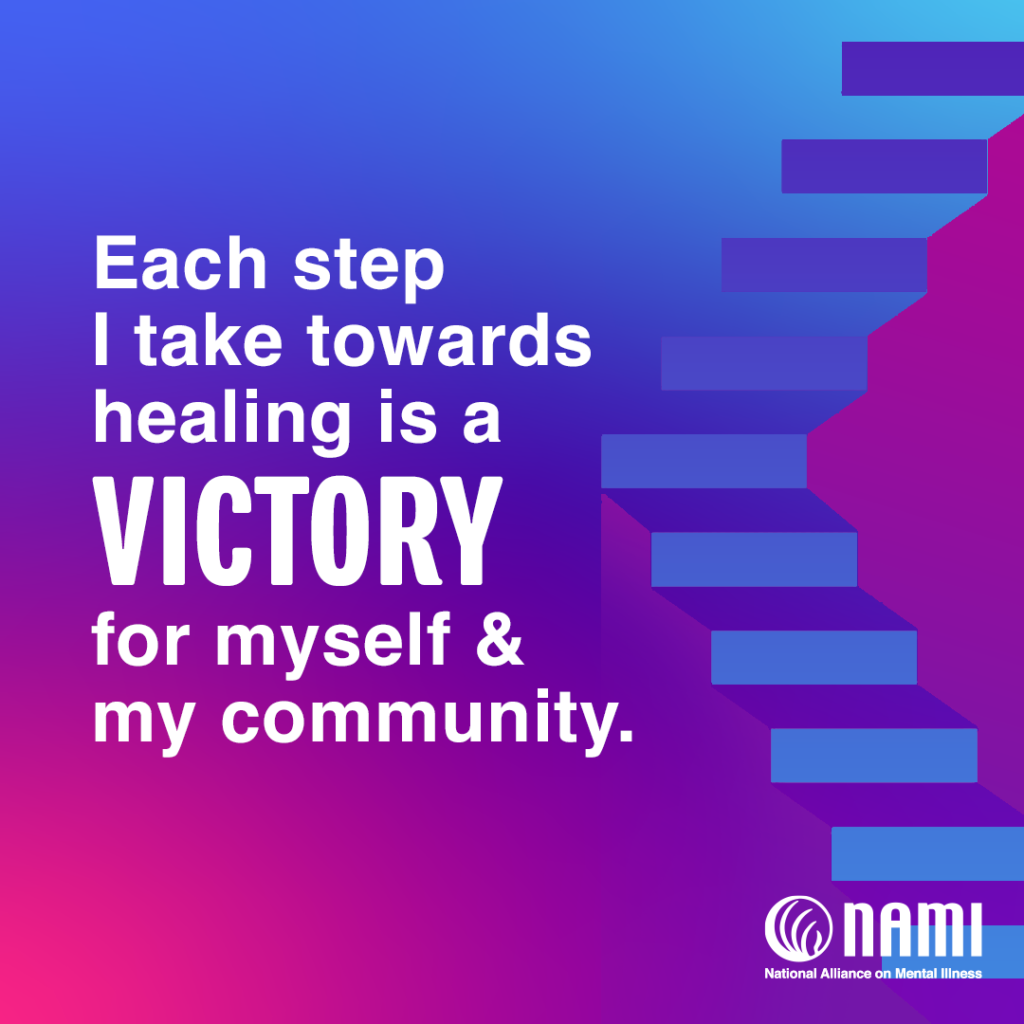
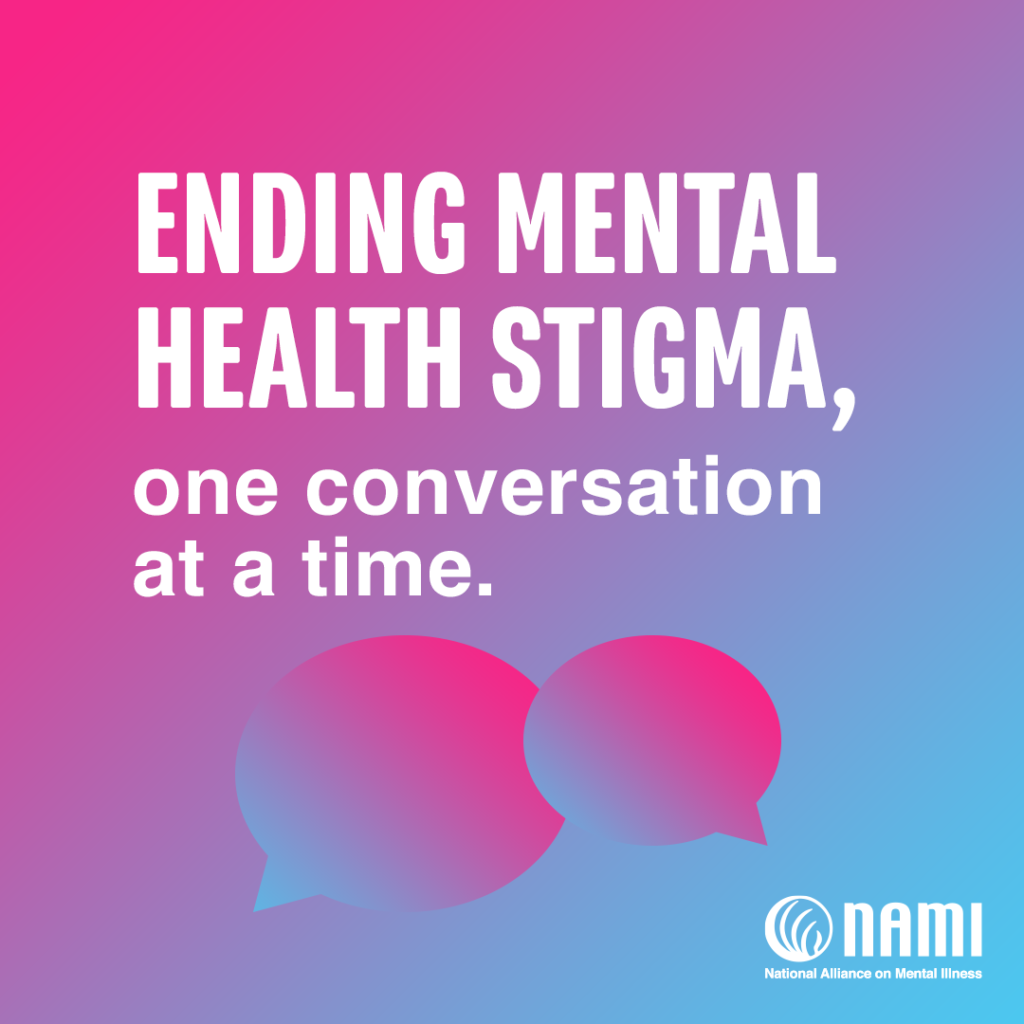
We have included below NAMI’s toolkit for the 2024 Bebe Moore Campbell National Minority Mental Health Awareness Month which can be downloaded here as well
NAMI_BBMC_ToolkitFor more information and resources, visit NAMI’s Bebe Moore Campbell page.
Centers for Disease Control and Prevention (CDC)
The CDC focuses on promoting mental health equity and provides extensive resources to support minority mental health. Their initiatives include:
- Mental Health Education: The CDC educates the public on the importance of mental health and the challenges faced by minority groups.
- Barriers to Mental Health Care: They address obstacles such as cost, lack of insurance, and stigma that prevent minority communities from accessing mental health care.
- Stress and Trauma: The CDC acknowledges the impact of racial discrimination and violence on mental health and promotes coping strategies.
- Health Equity Initiatives: They collaborate with partners to develop culturally responsive resources, monitor mental health programs, and address racism as a public health threat.
- Support for Mental Health Workers: The CDC raises awareness about the mental health of health workers and provides resources for their well-being.
- Children’s Mental Health: They focus on improving access to mental health care for children and families, especially during crises.
For more information, visit CDC’s Minority Mental Health page.
Bebe Moore Campbell National Minority Mental Health Awareness Month is an important reminder to recognize and address the unique mental health challenges faced by minority communities. Organizations like MHA, the FDA, NAMI, and the CDC play vital roles in providing resources, education, and support to promote mental health equity. By working together and having open conversations, we can help ensure that BIPOC communities has access to the mental health care they need and deserve.
We have provided below a list of directories that can connect you or a loved one with a therapist. These directories feature therapists who are BIPOC. We have also included a directory Open Path Collective that is focused on providing therapeutic services at a sliding-scale rate for individual, and couples therapy.
Therapy for Black Girls – Therapy for Black Girls is an online space dedicated to encouraging the mental wellness of Black women and girls.
Therapy for Black Men – TherapyForBlackMen.org is a directory to help men of color in their search for a therapist. Using the directory, men can search by therapist location and specialization. Searching by location, the results will include the therapists near you and will display their credentials, location, and the issues they treat.
LatinxTherapy – Demystifying mental health stigmas in the Latinx community nationwide which includes a directory that has Latinx therapists.
InclusiveTherapists – Inclusive Therapists offers a safer, simpler way to find a culturally responsive, social justice-oriented therapist.
Open Path Collective – In partnership with licensed mental health clinicians in private practice throughout the fifty states, Open Path Psychotherapy Collective provides middle and lower-income level individuals, couples, families, and children with access to affordable psychotherapy and mental health education services.
“As Always Blu Specializes In You”
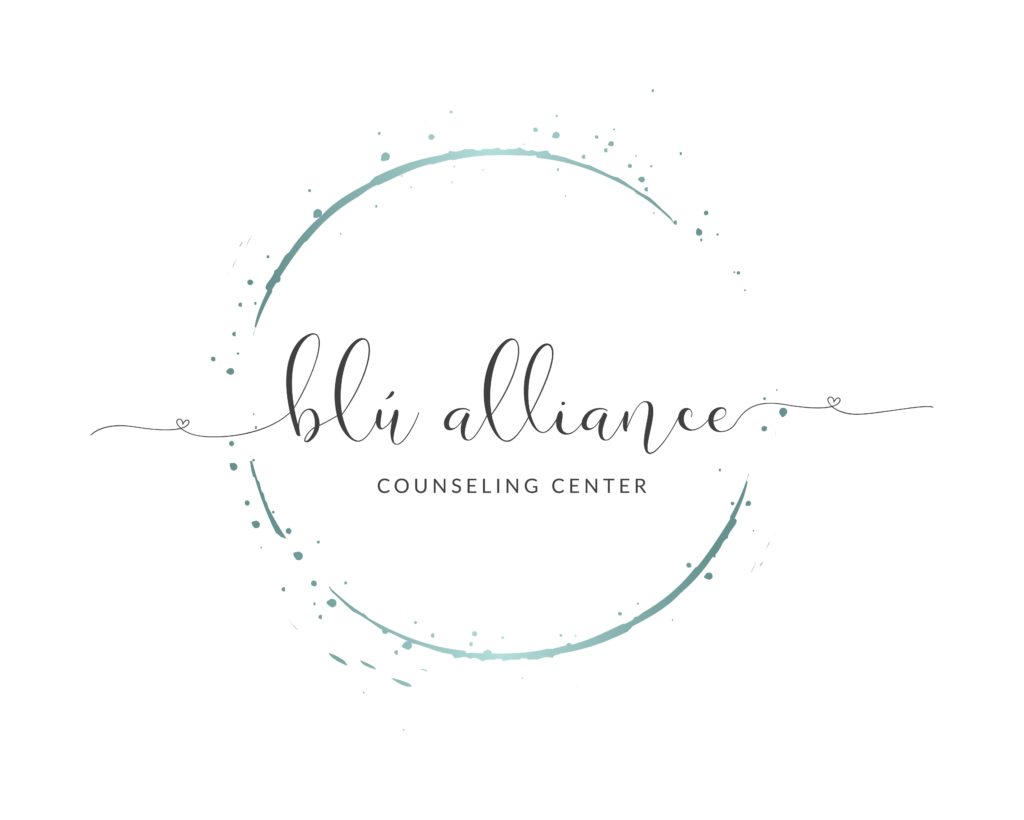
I am the Director of Operations at Blu Alliance Counseling Center. I contribute to the Blu Alliance Blog where my focus is providing information about therapy in a way that is honest, and relatable. My educational background includes a BA in Psychology from Cal State Los Angeles, and an MA in Marriage and Family Therapy from Alliant International University.
